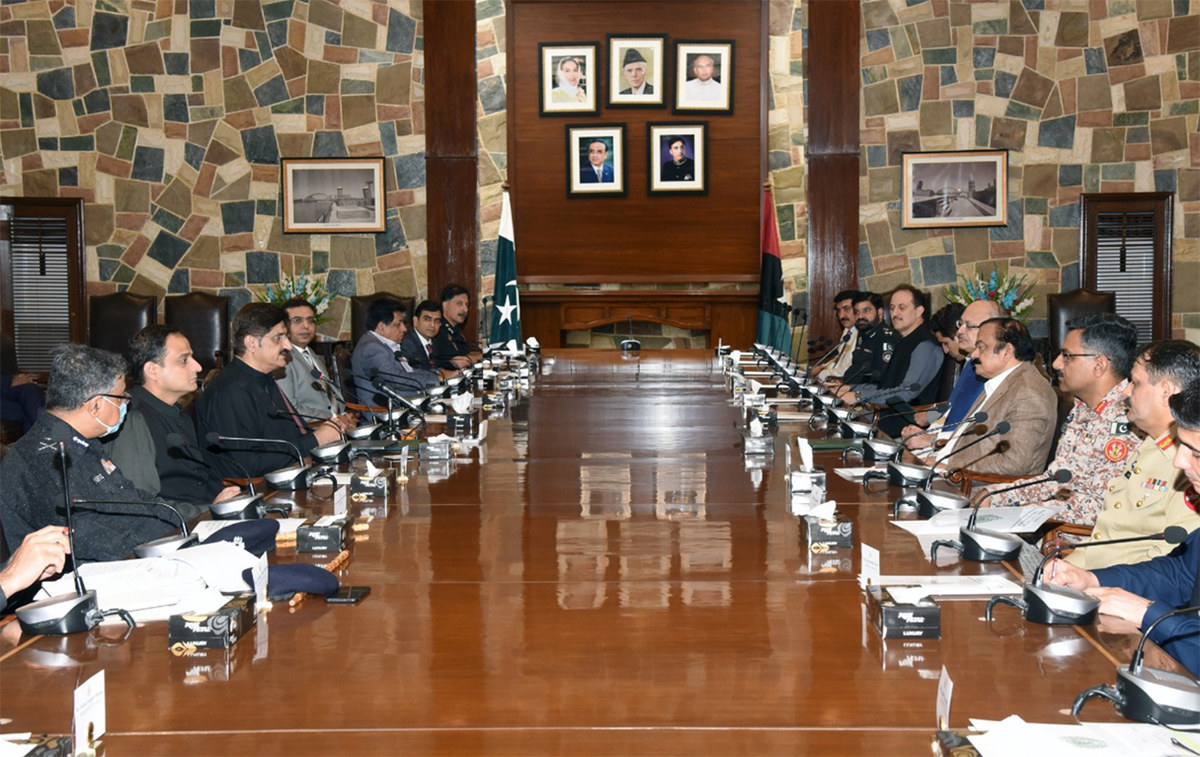KARACHI: Pakistan’s new interior minister Rana Sanaullah said on Wednesday the government would take “stern measures” to eliminate terrorism from the country, adding it would soon convene a meeting of chief ministers of all four provinces to activate the National Counter Terrorism Authority (NACTA) which remained dysfunctional in the last few years.
Sanaullah issued the statement during a daylong visit to Karachi in the aftermath of a suicide bombing carried out by a Baloch separatist group that killed four people, including three Chinese nationals.
The interior minister met Sindh chief minister Murad Ali Shah and took a briefing on the overall security situation before visiting the family of a local driver who lost his life in the tragic incident.
The briefing was given by senior counterterrorism department (CTD) officials who said they had made progress in the case.
They said the suicide bomber had arrived in Karachi from Turbat on March 20 and was living in the Gulistan-e-Jauhar neighborhood of the city.
“We will take stern action for the elimination of terrorism,” Sanaullah later told reporters. “NACTA has not performed any work in the last four years. We will soon arrange a meeting between the prime minister and the chief ministers of all four provinces to make it functional again.”

Pakistan's federal interior minister Rana Sanaullah (fourth from right) and Chief Minister of Sindh Murad Ali Shah (third left) hold meeting with top security officials in Karachi, Pakistan, on April 27, 2022. (CM House/Twitter)
Discussing the strategic nature of Islamabad’s relations with Beijing, he said the China-Pakistan Economic Corridor (CPEC) was the “future of Pakistan.”
“This project will prove to be a milestone in the development of our country,” he said, adding the authorities would provide full security to those working on the corridor projects.
Referring to the disgruntled Baloch people, he maintained that those demanding their rights were “not involved in terrorism.”
The interior minister said the Chinese embassy in Pakistan was satisfied with security arrangements and had not demanded extra measures for the protection of its citizens in the country.
“Chinese are satisfied with the steps taken by the government of Pakistan,” he said.
Sanaullah said the recent suicide bombing in Karachi was an attack on the relationship between the two countries.
Meanwhile, local media outlets reported that law enforcement agencies had carried out raids in Karachi and Turbat to arrest the husband of the female suicide bomber who targeted the Chinese citizens, though officials did not confirm the information.



















